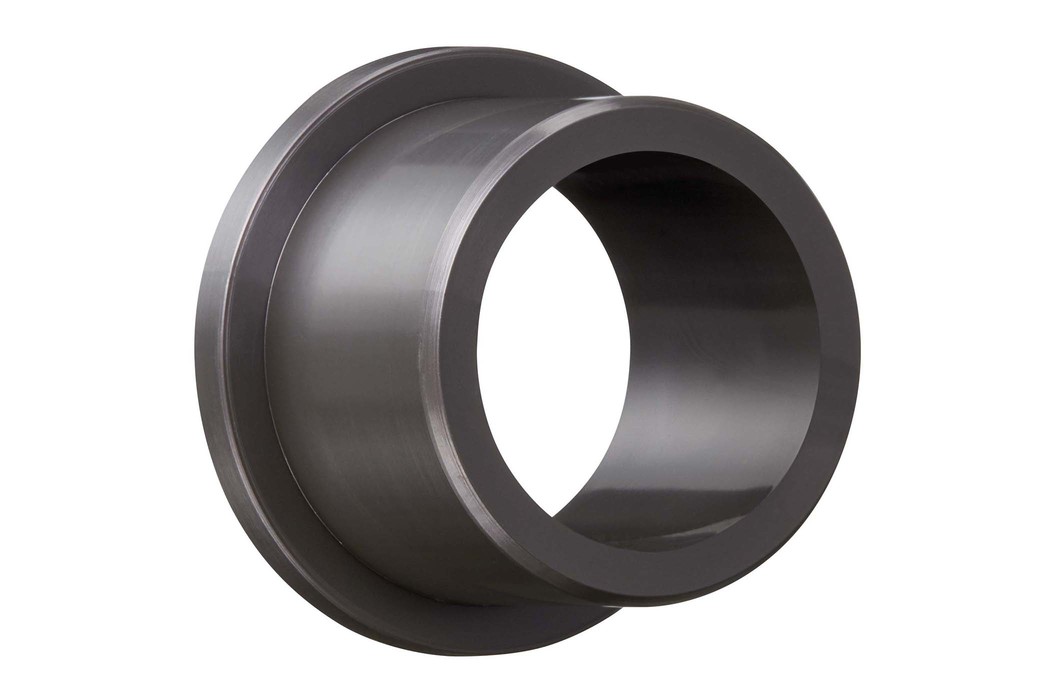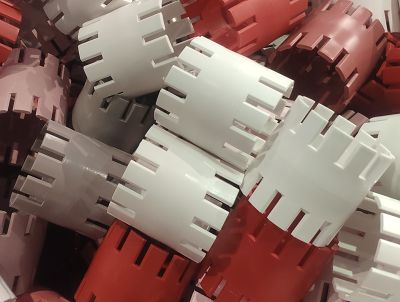Material Hub > Materialien
Materialien
-
Kategorie ThermoplasteEinsatztemperatur -40 – 80 °Cspezifischer Durchgangswiderstand > 1.0E+14 Ωcm
-
Kategorie ThermoplasteEinsatztemperatur -250 – 80 °Cspezifischer Durchgangswiderstand > 1.0E+14 Ω*cm
-
Kategorie ThermoplasteEinsatztemperatur -60 – 250 °Cspezifischer Durchgangswiderstand 4.9E+16 Ω*cm
-
Kategorie ThermoplasteEinsatztemperatur < 260 °Cspezifischer Durchgangswiderstand 1.0E+15 Ω*cm
-
Kategorie KunststoffbeschichtungEinsatztemperatur -40 – 250 °Cspezifischer Durchgangswiderstand –
-
Kategorie KunststoffbeschichtungEinsatztemperatur -40 – 230 °Cspezifischer Durchgangswiderstand –
-
Rhenolease® MK I-grau/HC (PTFE auf hartanodisierter Grundschicht)
Rhenotherm Kunststoffbeschichtungs GmbH
Kategorie KunststoffbeschichtungEinsatztemperatur -40 – 230 °Cspezifischer Durchgangswiderstand – -
Kategorie KunststoffbeschichtungEinsatztemperatur -40 – 230 °Cspezifischer Durchgangswiderstand –
-
Kategorie KunststoffbeschichtungEinsatztemperatur -40 – 250 °Cspezifischer Durchgangswiderstand –
-
Kategorie KunststoffbeschichtungEinsatztemperatur -40 – 260 °Cspezifischer Durchgangswiderstand –
-
Kategorie KunststoffbeschichtungEinsatztemperatur -40 – 260 °Cspezifischer Durchgangswiderstand –
-
Kategorie KunststoffbeschichtungEinsatztemperatur -40 – 260 °Cspezifischer Durchgangswiderstand –
-
Kategorie KunststoffbeschichtungEinsatztemperatur -40 – 260 °Cspezifischer Durchgangswiderstand –
-
Kategorie ThermoplasteEinsatztemperatur 0 – 100 °Cspezifischer Durchgangswiderstand > 1.0E+16 Ω*cm
-
Kategorie ThermoplasteEinsatztemperatur –spezifischer Durchgangswiderstand 4.0E+16 Ω*cm
-
Kategorie Thermoplastic CompoundEinsatztemperatur –spezifischer Durchgangswiderstand 1.0E+16 Ω*cm
-
Kategorie ThermoplasteEinsatztemperatur –spezifischer Durchgangswiderstand 4.0E+16 Ω*cm
-
Kategorie ThermoplasteEinsatztemperatur –spezifischer Durchgangswiderstand 2.0E+16 Ω*cm
-
Kategorie Thermoplastic CompoundEinsatztemperatur –spezifischer Durchgangswiderstand 1.0E+16 Ω*cm





